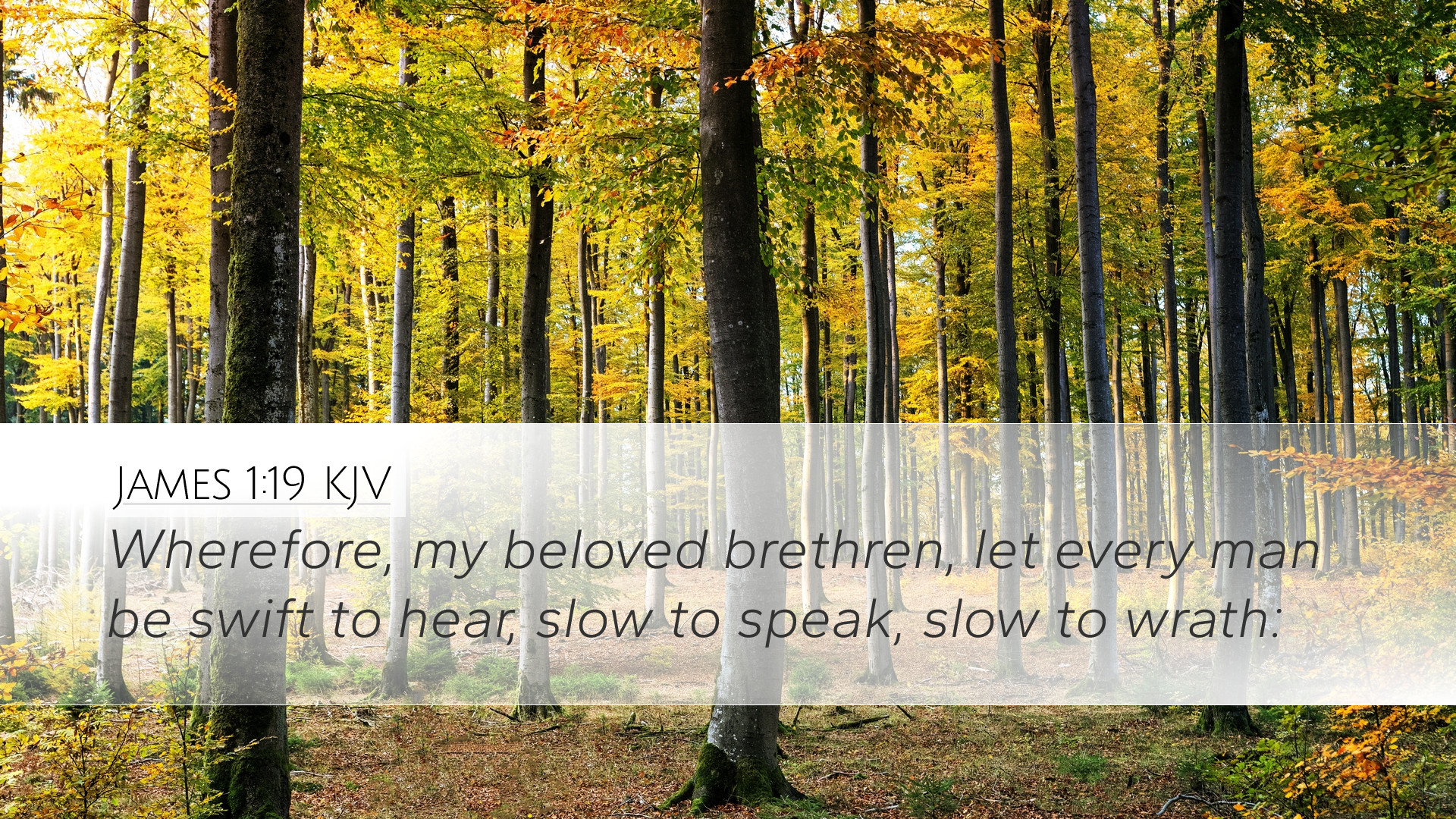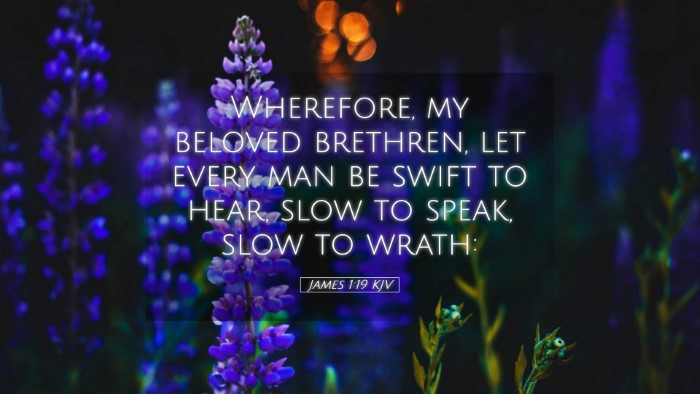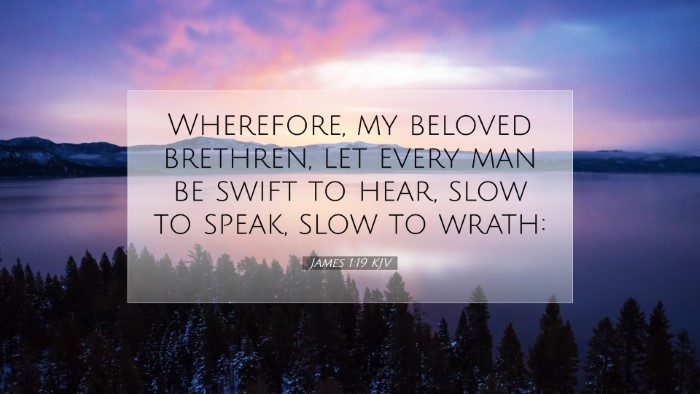Old Testament
Genesis Exodus Leviticus Numbers Deuteronomy Joshua Judges Ruth 1 Samuel 2 Samuel 1 Kings 2 Kings 1 Chronicles 2 Chronicles Ezra Nehemiah Esther Job Psalms Proverbs Ecclesiastes Song of Solomon Isaiah Jeremiah Lamentations Ezekiel Daniel Hosea Joel Amos Obadiah Jonah Micah Nahum Habakkuk Zephaniah Haggai Zechariah MalachiJames 1:19
James 1:19 KJV
Wherefore, my beloved brethren, let every man be swift to hear, slow to speak, slow to wrath:
James 1:19 Bible Commentary
Commentary on James 1:19
Verse: "Wherefore, my beloved brethren, let every man be swift to hear, slow to speak, slow to wrath."
Context and Overview
The book of James is known for its practical wisdom and exhortations regarding Christian living. The epistle addresses a Christian audience dispersed among the nations, providing guidance on navigating trials and temptations. In this verse, James calls the followers of Christ to a posture of humility, reflecting on the importance of listening and controlling one's speech and anger.
Swift to Hear
The exhortation to be "swift to hear" indicates the importance of being attentive listeners. Matthew Henry elaborates on this, stating that listening is foundational to understanding, and it indicates humility and the willingness to learn from others. Albert Barnes emphasizes that one of the greatest problems in communication is the tendency to listen poorly. He advocates that to be effective followers of Christ, one must prioritize listening over speaking.
Slow to Speak
The phrase "slow to speak" cautions against hasty words and emphasizes the power of speech. Adam Clarke points out that many conflicts arise from unguarded tongues and advises believers to be more measured in their responses. By being slow to speak, individuals are encouraged to pause, reflect, and think through their words before expressing them, thus fostering more constructive dialogue.
Slow to Wrath
Being "slow to wrath" is a reminder of the destructive nature of uncontrolled anger. Matthew Henry notes that anger often clouds judgment and leads to actions that are contrary to Christian virtues. He emphasizes that believers should strive for a spirit that mirrors Christ, characterized by patience and love. Albert Barnes further asserts that anger does not produce the righteousness God desires, and thus, to be slow to wrath reflects a mature character that aligns with God’s will.
Integration of Concepts
The threefold instruction in this verse—being swift to hear, slow to speak, and slow to wrath—intertwines to form a holistic approach to communication and relationships. Adam Clarke suggests that these principles provide a framework for how Christians should engage with one another amidst differences. By prioritizing listening, being mindful in speech, and exhibiting restraint in anger, believers can cultivate an environment of harmony and understanding, essential for growth in faith and community.
Practical Applications
- Reflective Listening: Before responding in discussions, take a moment to reflect on what has been said.
- Controlled Speech: Consider the implications of your words; strive for constructive rather than destructive conversations.
- Manage Anger: When faced with provocation, practice patience and think strategically about your reactions.
By incorporating these practices into everyday life, believers can significantly enhance their relationships with others and their witness as followers of Christ.
Conclusion
James 1:19 stands as a timeless instruction for believers everywhere. By committing to be "swift to hear, slow to speak, and slow to wrath," Christians can develop a character that reflects Christ's love and patience, promoting unity and understanding within the body of Christ.


